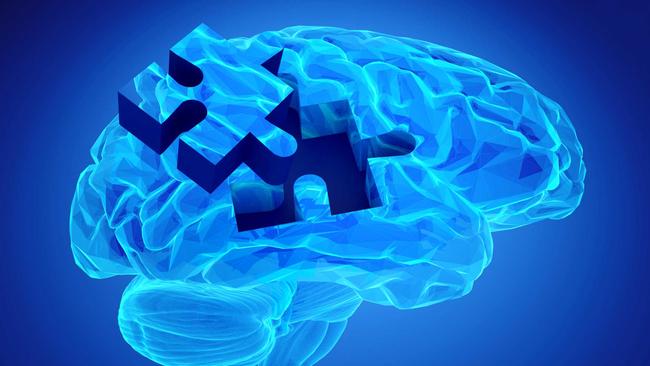Covid long term effects: UQ researcher says more research needed on brain damage links
A UQ researcher believes the damage Covid causes to the brain can be reversed and has called for more research into the long-term effects of the virus.
QLD Coronavirus News
Don't miss out on the headlines from QLD Coronavirus News. Followed categories will be added to My News.
A University of Queensland researcher believes brain damage and shrinkage caused by Covid can be reversed.
International research has found links between even mild doses of virus and damage to the brain.
University of Queensland Brain Institute senior research fellow Susannah Tye said there was a need for further research into the long-term effects of Covid-19, because most people had their scans within six months of having the virus.
Ms Tye said the brain was “very plastic” and the message was “use it or lose it” for a lot of sensory processing.
A mild case of Covid-19 can cause “significant” damage to the brain, and the shock extent of the neurobiological harm has been revealed in one of the biggest brain-imaging studies since the pandemic hit.
“There’s some evidence even from other illnesses where sense of smell can be stimulated, those areas of the brain regrow because the brain is very plastic – those specific parts of the brain likely would regenerate as the person started smelling again,” she said.

The research compared brain scans from 785 people aged 51-81 before and after mostly mild infections.
But Ms Tye said promoting brain health was “absolutely critical” whether people are infected with Covid or not.
She said stimulation can be “therapeutic” even for people with busy and fast-paced lives.
“But it’s especially important for vulnerable people, susceptible to anxiety or depression, to really target that inflammation through lifestyle changes and more novel treatments that really help the brain respond – not standard antidepressants or anti-anxiety medications,” Ms Tye said.
“People’s experience with brain fog is more related to the causes of general inflammation, that can happen with chemotherapy, chronic illness and contribute to depression.
“Some people just have low-grade inflammation which can be caused by multiple different things in their environment and essentially slows the brain’s ability to think clearly.”
Ms Tye said brain fog put stress on the system long term and increased the risk of dementia later in life.
“It’s very much an accumulative process so Covid is unlikely to have long-term effects, unless the virus gets into the brain and continues to trigger these reactions,” she said.
“We study this with respect to stress – stress causes inflammation and for the same reason it’s putting a lot of pressure and work on the cells of the body and parts of the brain.”
Ms Tyre said a Western-style of diet could also be “very pro-inflammatory.”
“The body has to work hard to process food and clean it out, there’s a lot of toxic substances on a cellular level,” she said.
“Over the long term it causes wear and tear as the body tries to clear out that system, those by-products of the food and the process of breaking down that food whereas with a Mediterranean diet – high in all the good fats and antioxidants – does exactly the reverse, supports the cells to do their job of making energy, metabolising energy.”
Ms Tyre said a Mediterranean diet “mops up by-products so they are less damaging to the cells and less likely to cause inflammation and if inflammation is happening it helps that return to health.”
“Minimising stress, getting good sleep and eating a healthy anti-inflammatory diet and having good gut healthy with microbiome – all of that really works together to protect the brain and protect the body as an entire system so that’s where I think vulnerable people might be more inclined to maintain that inflammatory state post Covid and experience that brain fog,” she said.
“And while we certainly need more research to be done on that – we know that from all the work that’s happened in the past with other infections and chronic stresses – plays a major fact in risk for depression and anxiety, fatigue, brain fog which are all transient.”


